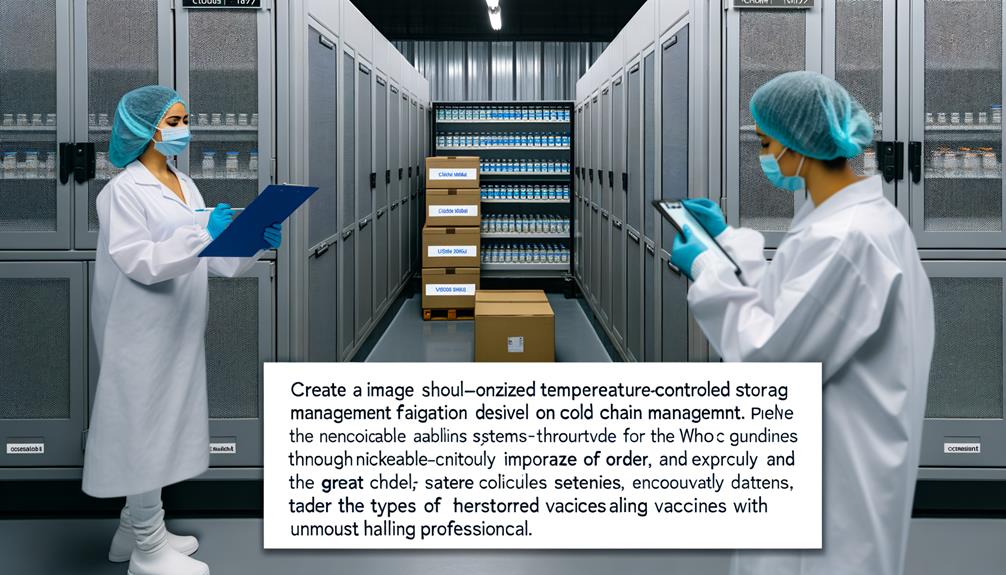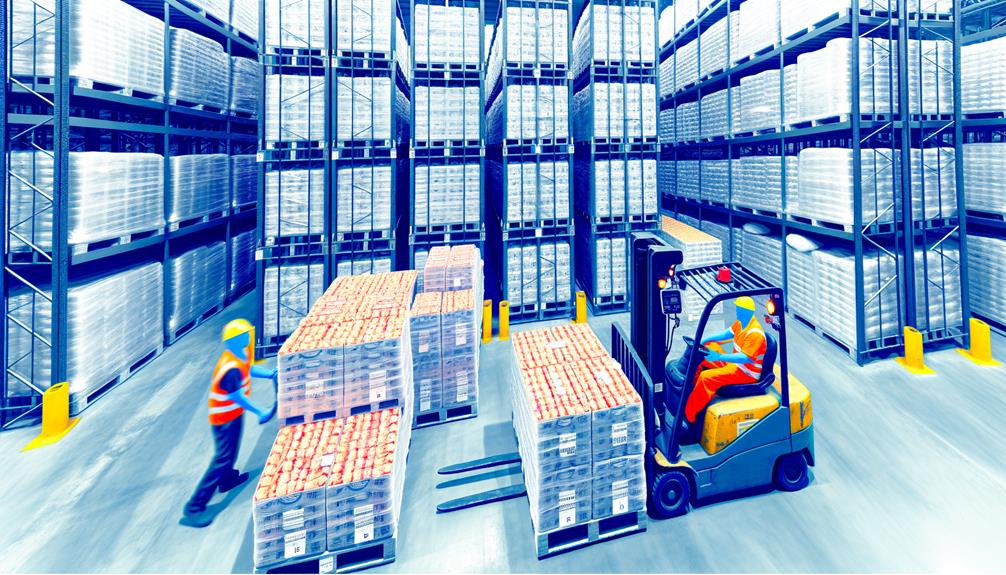As a pharmaceutical industry professional, I know that billions of dollars’ worth of pharmaceuticals are wasted each year due to temperature fluctuations, exposure to light and heat, and shock during transportation. Counterfeiting, theft, and diversion also pose risks to patient safety.
That’s why revolutionary track and trace solutions have emerged to protect pharmaceutical integrity. By leveraging technologies like serialization, barcoding, RFID, tamper-evident seals, and blockchain, we can create robust systems that reduce the risk of counterfeiting and tampering.
Join me as we explore these game-changing advancements in protecting pharmaceutical integrity.
The Importance of Track and Trace Solutions
Track and trace solutions are essential for ensuring the integrity and safety of pharmaceutical products. Implementing track and trace systems in the pharmaceutical industry brings numerous benefits.
Firstly, these solutions provide complete visibility over the supply chain, allowing companies to monitor the entire journey of their products from production to delivery. This helps in detecting and eliminating any counterfeit or diverted products, ensuring authenticity and reducing health risks for patients.
Secondly, track and trace systems help in complying with regulatory requirements by maintaining accurate and traceable records. However, implementing track and trace solutions also comes with its challenges. Companies face the task of integrating multiple technologies and ensuring data integrity throughout the supply chain. Furthermore, there may be initial costs involved in implementing these systems.
Despite the challenges, the benefits of implementing track and trace solutions far outweigh the difficulties, as they’re crucial for maintaining product integrity and ensuring patient safety.
Challenges Faced by the Pharmaceutical Industry
One of the challenges I face in the pharmaceutical industry is ensuring the integrity and safety of our products.
The pharmaceutical industry faces various challenges that can compromise the quality and efficacy of pharmaceutical products. Rapid temperature fluctuations, exposure to excessive light and heat, and excessive shock exposure during transportation are some of the common challenges. These challenges contribute to the annual waste of $37 billion worth of pharmaceuticals.
Counterfeiting, theft, and diversion also pose significant risks to patients and the industry. Ensuring product integrity is crucial for the efficacy and safety of pharmaceutical products.
Implementing track and trace systems, such as serialisation, barcoding, RFID technology, data matrix codes, tamper-evident seals and labels, and blockchain technology, plays a vital role in safeguarding product integrity, enhancing supply chain visibility, and complying with regulatory requirements.
Understanding Track and Trace Systems
As I delve into the topic of understanding track and trace systems, it becomes evident that these innovative solutions play a crucial role in ensuring the integrity and authenticity of pharmaceutical products.
Track and trace systems provide complete visibility over the supply chain, safeguarding product integrity and ensuring compliance with regulatory requirements. These systems, which include serialisation, barcoding, RFID technology, data matrix codes, tamper-evident seals and labels, and blockchain technology, help in reducing the risk of counterfeiting, diversion, and tampering.
The benefits of track and trace systems in the pharmaceutical industry are immense, as they provide end-to-end visibility, traceability, and compliance, ensuring the safety and efficacy of pharmaceutical products.
Looking ahead, the future of track and trace technology in the pharmaceutical industry holds immense potential for further advancements in ensuring product integrity and supply chain security.
Role of Different Technologies in Ensuring Product Integrity
Different technologies play a pivotal role in ensuring the integrity of pharmaceutical products and safeguarding patient safety. Advancements in track and trace technology have revolutionized the way we monitor and protect pharmaceutical products throughout the supply chain.
One key technology that has been integrated into track and trace systems is blockchain. Blockchain technology provides a secure and transparent platform for recording and verifying product information, ensuring authenticity and preventing tampering or counterfeit products. By leveraging the decentralized nature of blockchain, pharmaceutical companies can create an immutable record of every transaction and movement of their products.
This integration enhances supply chain visibility, reduces the risk of counterfeiting, and ensures compliance with regulatory requirements. With the integration of blockchain in track and trace systems, pharmaceutical companies can ensure the integrity of their products and provide patients with safe and effective medications.
Types of Track and Trace Solutions
What are the various types of track and trace solutions available to protect pharmaceutical integrity?
There are several types of track and trace solutions that help safeguard pharmaceutical integrity and ensure compliance with regulatory requirements. These solutions include:
- Barcoding systems: Barcoding systems use unique identification through barcodes affixed to packaging.
- RFID technology: RFID technology captures data through radio waves stored on tags or labels.
- Serialisation: Serialisation assigns a unique serial number to individual units or batches of products.
- Data matrix codes: Data matrix codes store more information than traditional barcodes.
- Tamper-evident seals and labels: Tamper-evident seals and labels detect any unauthorized access or tampering.
These track and trace solutions provide benefits such as improved supply chain visibility, compliance, data integrity, and traceability.
In the future, advancements in track and trace systems are expected to enhance product security and further protect pharmaceutical integrity.
Ensuring Compliance and Supply Chain Security
How can track and trace solutions ensure compliance and enhance supply chain security in the pharmaceutical industry?
By implementing track and trace solutions, pharmaceutical companies can ensure data integrity throughout the supply chain, reducing the risk of counterfeiting and diversion.
These solutions provide enhanced supply chain visibility, allowing companies to track the movement of products and identify any potential security breaches.
By integrating track and trace technologies such as serialisation, barcoding, and RFID, companies can create robust and layered systems that strengthen the security of the supply chain.
Ensuring compliance and supply chain security is crucial in the pharmaceutical industry. Track and trace solutions play a vital role in achieving this by ensuring data integrity and enhancing supply chain visibility. By implementing these solutions, pharmaceutical companies can track the movement of products, reduce the risk of counterfeiting and diversion, and identify any potential security breaches. By integrating technologies such as serialisation, barcoding, and RFID, companies can create robust and layered systems that strengthen the security of the supply chain.
Read More:
Mastering Temperature Data Logging for Optimal Performance
Revolutionary Active Tracking Maximizes Meat Shelf-Life
Revolutionizing Cold Chain Operations: Mastering Efficiency
Unveiling the Secrets to Perfect Perishable Compliance
Cold Chain Risks: Safeguarding Global Supply Chains
The Impact of Track and Trace Solutions on Regulatory Standards
Track and trace solutions have a significant impact on regulatory standards in the pharmaceutical industry, ensuring compliance and enhancing supply chain security. These solutions play a crucial role in meeting pharmaceutical regulations by providing end-to-end visibility, data integrity, and traceability.
By implementing track and trace systems such as serialisation, barcoding, RFID technology, and tamper-evident seals, pharmaceutical companies can strengthen the security of their supply chains and reduce the risk of counterfeiting, diversion, or tampering.
Compliance with regulatory standards throughout the supply chain is essential for pharmaceutical products, and track and trace solutions help achieve this goal. These solutions enable companies to adhere to compliance standards set by different countries and organizations, ensuring the authenticity and safety of pharmaceutical products.
Ensuring Temperature-Controlled Transport for Product Integrity
Maintaining temperature control is crucial for preserving pharmaceutical product integrity during transportation. The role of temperature-controlled logistics in the pharmaceutical industry is paramount in ensuring that products remain within the required temperature range. Implementing cold chain solutions is essential for safeguarding the efficacy and safety of pharmaceutical products.
Temperature-controlled transport plays a pivotal role in preserving product integrity. Deviations from the required temperature range can render products ineffective and compromise patient safety. Rapid temperature fluctuations during transit and exposure to excessive heat can jeopardize the efficacy of pharmaceutical products.
The Role of Temperature Tracking and Monitoring
Temperature tracking and monitoring are essential for ensuring the integrity of pharmaceutical products during transportation. This allows me to closely monitor and control the temperature conditions, minimizing the risk of product degradation and ensuring that patients receive safe and effective medications.
Implementing temperature tracking and monitoring in the pharmaceutical industry comes with its challenges. Maintaining accurate and reliable temperature data throughout the entire supply chain can be difficult due to various factors such as logistics complexity, lack of standardized processes, and limited visibility.
In addition to these challenges, the role of data analytics is crucial in optimizing temperature-controlled transport for pharmaceutical products. By analyzing temperature data, we can identify patterns, detect potential issues, and make informed decisions to improve the efficiency and effectiveness of temperature control measures.
Furthermore, data analytics enables us to proactively address any temperature deviations and take corrective actions to ensure product integrity and patient safety. This holistic approach ensures that pharmaceutical products are transported under optimal temperature conditions, reducing the risk of product degradation and ensuring that patients receive safe and effective medications.
The Benefits of Revolutionary Track and Trace Solutions
Implementing revolutionary track and trace solutions in the pharmaceutical industry allows me to enhance product integrity and ensure patient safety by providing end-to-end visibility and compliance throughout the supply chain.
The benefits of traceability technology in enhancing pharmaceutical supply chains are significant:
- Increased transparency: Track and trace solutions provide real-time visibility into the movement of pharmaceutical products, allowing me to monitor their journey from production to delivery.
- Improved product authenticity: By incorporating unique identification codes, such as serial numbers or barcodes, I can verify the authenticity of pharmaceutical products, reducing the risk of counterfeiting or diversion.
- Enhanced regulatory compliance: Traceability technology helps me comply with regulatory standards and maintain data integrity, ensuring that all products meet the necessary quality and safety requirements.



